How the Web and the Weblog have changed Writing
by Philip Greenspun in May 2009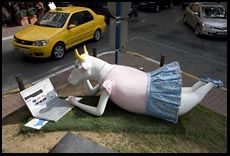
How the Web and the Weblog have changed Writingby Philip Greenspun in May 2009 |

|
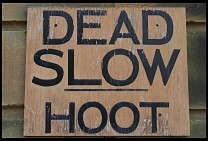 The pre-1990 commercial publishing world supported two lengths of
manuscript:
The pre-1990 commercial publishing world supported two lengths of
manuscript:
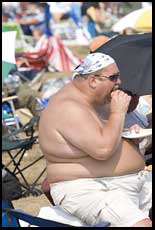 In the 1980s Steve Ward, a professor of electrical engineering and
computer science at MIT, described a sure-fire dieting scheme. "All
that you need for my diet is graph paper, a ruler, and a pencil,"
Steve would explain. "The horizontal axis is time, one line per
day. The vertical axis is weight in lbs. You plot your current weight
on the left side of the paper. You plot your desired weight on a
desired date towards the right side, making sure that you've left the
correct number of lines in between (one per day). You draw a line from
the current weight/date to the desired weight/date. Every morning you
weigh yourself and plot the result. If the point is below the line,
you eat whatever you want all day. If the point is above the line, you
eat nothing but broccoli or some other low-calorie food."
In the 1980s Steve Ward, a professor of electrical engineering and
computer science at MIT, described a sure-fire dieting scheme. "All
that you need for my diet is graph paper, a ruler, and a pencil,"
Steve would explain. "The horizontal axis is time, one line per
day. The vertical axis is weight in lbs. You plot your current weight
on the left side of the paper. You plot your desired weight on a
desired date towards the right side, making sure that you've left the
correct number of lines in between (one per day). You draw a line from
the current weight/date to the desired weight/date. Every morning you
weigh yourself and plot the result. If the point is below the line,
you eat whatever you want all day. If the point is above the line, you
eat nothing but broccoli or some other low-calorie food."
Steve noted that this could also be called the "Bang-Bang Servo Diet" but that would likely be confusing to non-engineers (see http://en.wikipedia.org/wiki/Bang-bang_control).
Steve's diet is probably more effective than most popular diets. How come he isn't a bestselling diet book author? How do you turn an idea that can be explained in one paragraph into a diet book that people will buy? Printing that one paragraph really large would take up one page. Then you'd have a few example graphs, each with a personal story of someone for whom the Steve Ward Diet worked. Now we've got 10 pages. We still need 190 pages. So we add recipes for near-zero calorie foods: steamed broccoli; raw celery; lettuce au radis; etc. Eventually we have something that can be sold for $12.95 in a bookstore, but is it better than that one paragraph description?
Harry Greenspun, M.D., one of America's most brilliant doctors (according to our mother), offers his own diet: "Don't eat anything that a Caveman wouldn't have eaten; humans have not had enough time to adapt biologically to the agricultural revolution." What does that mean? "You can eat meat, vegetables that you pick up from the ground and fruits that you pick out of a tree. Don't eat pasta, bread, corn, potatoes, and other products of modern agriculture."
For Dr. Greenspun to get this idea to the public through commercial publishing channels would require him to add 200 pages of elaboration that would not make the diet more useful. Perhaps it could be a 20-page diet, but the market for pamphlets is very limited, and 20 pages is too long for a magazine sold in supermarkets.
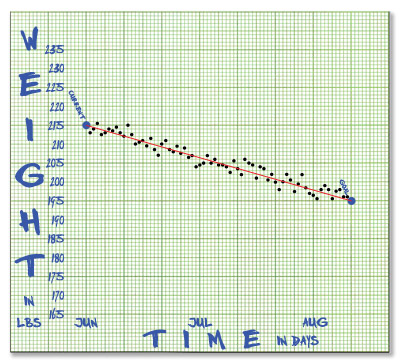
How about a collection? If an author writes enough essays, eventually they can be collected into a 200-page book and distributed commercially. Many authors are experts on only a single subject and should not be encouraged to continue scribbling.
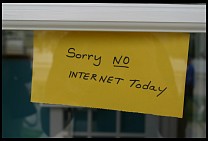 The original World Wide Web, as conceived and implemented in 1990,
solved seemingly all of the problems of publishing:
The original World Wide Web, as conceived and implemented in 1990,
solved seemingly all of the problems of publishing:
How would a reader consume one-paragraph ideas? Wait until an author had developed a few dozen and published a page of collected thoughts? Return periodically to an author's site to see if there were any new paragraphs added?
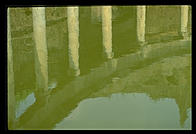 Marcus Aurelius, Roman Emperor from 160 AD to 180 AD, kept a journal
during a military campaign in central Europe (171-175). It was not
available until after his death and not widely available until printed
in 1558 as the Meditations.
Marcus Aurelius, Roman Emperor from 160 AD to 180 AD, kept a journal
during a military campaign in central Europe (171-175). It was not
available until after his death and not widely available until printed
in 1558 as the Meditations.
Do not disturb thyself by thinking of the whole of thy life. Let not thy thoughts at once embrace all the various troubles which thou mayest expect to befall thee: but on every occasion ask thyself, What is there in this which is intolerable and past bearing? For thou wilt be ashamed to confess. In the next place remember that neither the future nor the past pains thee, but only the present. But this is reduced to a very little, if thou only circumscribest it, and chidest thy mind, if it is unable to hold out against even this.
This was preserved because the author had been Emperor. How much ancient wisdom was lost because the common Roman citizen lacked TCP/IP? [By 1700 BC, the Minoans were trading with Spain, had big cities with flush toilets, a written language, and moderately sophisticated metalworking technology. Had it not been for the eruption of Thera (on Santorini), it is quite possible that Romans would have watched the assassination of Julius Caesar on television.]
After Marcus there have been quite a few folks whose collected short thoughts have interested readers, but in very few cases have those thoughts been made available in a timely manner.
There's an iPhone app that's been created for that style of diet now: http://www.linedietapp.com/ I guess Apps are a new way of publishing a simple practical idea rather than a book.
-- Matthew Lock, April 4, 2016